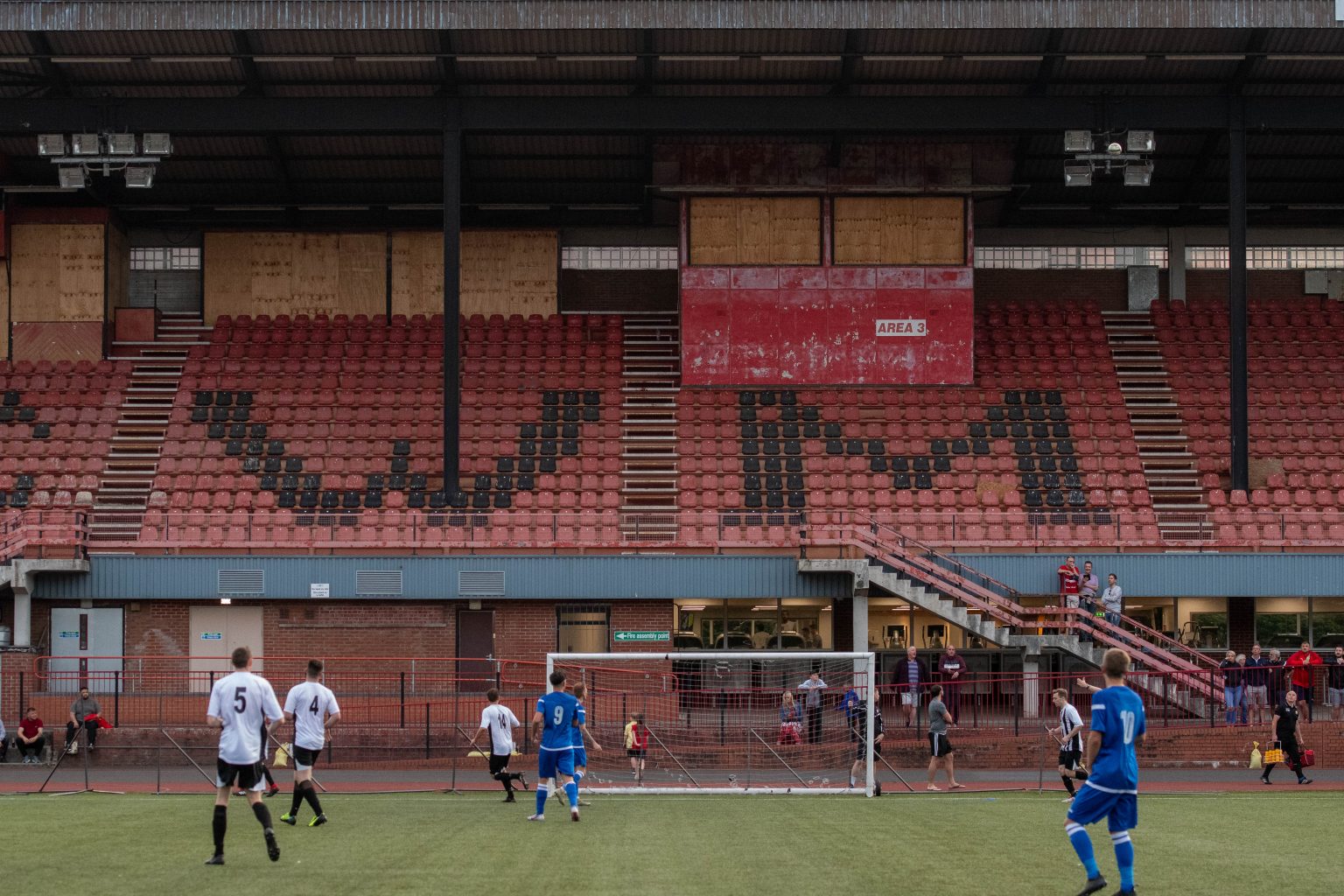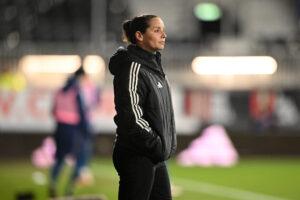Cwmbrân Town: The history of the Cymru Premier’s inaugural winners

When the Cymru Premier was formed in 1992, few expected the first campaign to be won by Cwmbrân Town, but the Crows did just that.
Formed in 1951, the South Wales-based side started out in the Monmouthshire Senior League, playing their home games at Cwmbrân Park, before joining the Welsh Football League in 1960.
After over two decades of welcoming sides to Cwmbrân Park, the Crows made the move to their current ground, the Cwmbrân Stadium, in 1975.
Despite falling out of the top flight of the Welsh Football League between 1978 and 1981, Cwmbrân experienced a level of progress in the National Division of the league’s restructure, finishing third in 1987 and going close to the title in 1990.
Having been invited to become a founding member of the Cymru Premier in 1992, the Crows’ first season in Wales’ new top flight was truly remarkable.
Under the management of club legend, the late Tony Wilcox, Cwmbrân lost just three times over the course of the 38-game season and consistent throughout the campaign.
The Crows also boasted one of the best defences in Welsh top flight history, conceding just 22 goals all season, an average of 0.58 per game.
Wilcox’s side finished the season five points above Inter Cardiff in second, a club who also have a rich vein of history.
Cwmbrân’s reward for their remarkable season was not only the Cymru Premier title, but also becoming the first Welsh domestic side to represent the country in Europe’s premier cup competition, the Champions League.
The Crows were drawn to face Cork City of the Republic of Ireland in the preliminary round. Despite racing to a 3-0 lead in the first leg, with a penalty from Simon King and a brace from striker Francis Ford, Cork fought back, as the score was set at 3-2 going into the second leg.
Although the Welsh side took the lead in the away leg through Phil McNeil, giving themselves a 4-2 lead on aggregate, it was heartache for Cwmbrân, as goals from Pat Morley and Johnny Glyn saw the Irish outfit level the tie at 4-4 and progress on away goals.
Defender David Burrows, who played a key part in the Crows’ side, described the experience in an interview with faw.cymru.
“We flew out for the second leg, strangely we flew from London to Cork, which didn’t make sense as it took us longer to get to London than what to took to fly to Cork,” revealed Burrows. “We stayed there for two days and there was another good crowd.
“We had a great chance to level at 2-1 through Phil McNeill which would have taken us through, but we went out on away goals. Cork City then played Galatasaray, who later in the competition that season went on to beat Manchester United.
“I’ve always supported Man United, and we had never heard of Galatasaray at the time, so when you think of what might have been. It was a great experience, but on the other hand, so disappointing, because we were so close.”
However, the loss to Cork City wasn’t Cwmbrân Town’s only experience of European football, as the club qualified for the UEFA Cup Winners’ Cup in 1997, as runners-up in the Welsh Cup. The Crows fell at the final hurdle in the Welsh Cup three times between 1997 and 2003.
Cwmbrân faced Romanian giants National Bucaresti and were defeated 12-2 on aggregate in another monumental fixture for the club.
Just two years later, the Crows had another taste of the big stage, as they were drawn to face Celtic in the UEFA Cup, in one of the biggest fixtures for a Welsh domestic club.
Despite a 10-0 loss on aggregate, the tie against the Scottish giants is not only a huge part of the club’s history, but also a part of Welsh football folklore.
In a great period for the club, the Crows came close to another Cymru Premier title win in the 2000/2001 season, as they finished second, three points behind champions Barry Town.
Wilcox’s side had another three appearances in European competition in the new millennium, in both the UEFA Intertoto Cup and the UEFA Cup.
Cwmbrân Town earned even more historic ties, facing Moldovan side Nistru Otaci, Sloviakian giants Slovan Bratislava and Maccabi Haifa of Israel.
A huge blow for the club and for Welsh football came in April 2003 with manager Tony Wilcox’s passing, remembered as a Crows legend.
The following seasons saw financial trouble hit Cwmbrân Town, as the club couldn’t keep key figure and top scorer Jody Jenkins.
Despite receiving some help from local side Newport County, the club were eventually relegated from the Cymru Premier for the first time in 2007, after a 5-1 defeat to Llanelli.
In the period after their relegation from Wales’ top flight, the Crows fell further down the pyramid, into the Gwent County League.
After avoiding relegation in their first few years in the Gwent County League, the Crows progressed up the table from season to season and finished in fourth at the end of both the 2017-18 and 2018-19 seasons.
The club have also had success in cup competitions of late, winning the Gwent Senior Cup with a 1-0 victory over Ynysddu Welfare.
The Crows also had a strong Welsh Cup campaign in the 2018-19 season, knocking out Afan Lido, in another chapter in the club’s rich vein of history.
(Featured Image: Will Cheshire)








